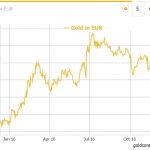Talking Points:
What are DailyFX analysts’ expectations for the Dollar, Equities, Gold and Oil for the Second Quarter? See our forecast to find out!
In the years following the Great Recession – the global downturn emanating from the US subprime mortgage collapse in 2007 – competing narratives trying to explain the crisis have emerged from professional and layman circles alike. A loose consensus storyline describes a chain reaction triggered by the unwinding of excessive debt levels accumulated by US households following the implosion of a speculative bubble in the real estate market.
As property values began to decline, the equity cushion allowing highly indebted homeowners to maintain robust consumption levels evaporated, undermining economic activity and triggering a slump in growth. The mass ownership of opaque and often loosely regulated financial instruments linked to home prices by large financial institutions compounded the problem. When the prices for these instruments followed real estate values downward, a rush for cash to cover losses metastasized into a global credit crunch and helped drive market-wide contagion.
The global financial crisis: what happened?
Initial rumblings of the subprime mortgage blow-up began in earnest in 2007. In February, Freddie Mac said it will no longer buy most subprime mortgages. By April, leading subprime lender New Century Financial Corp went bankrupt. The pain spread to Wall Street proper in June as Bear Stearns – an investment bank – suspended redemptions from an “enhanced leverage” fund betting on mortgage-linked derivatives. It spilled out beyond the US in September as the Bank of England offered liquidity support to Northern Rock, a top-five UK mortgage lender.












Leave A Comment